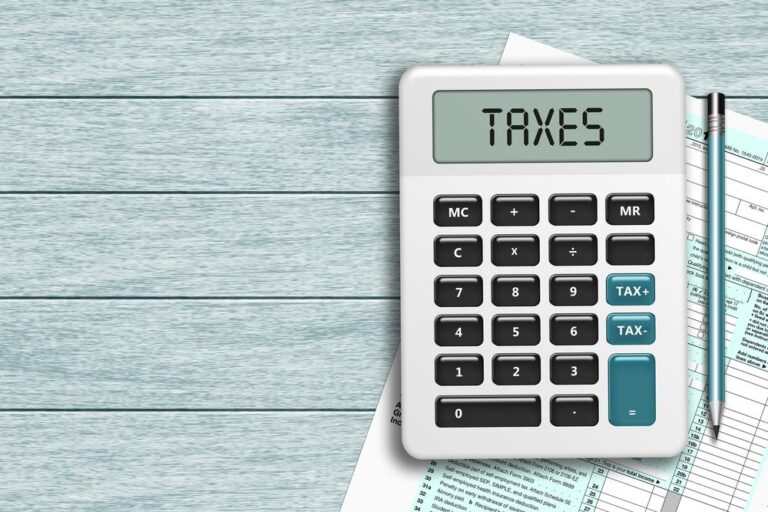Seniors are a unique group of individuals who have different financial needs and responsibilities than younger generations. One of the biggest concerns for seniors is taxes, and many are unaware of the tax deductions that are available to them. Tax deductions can help seniors save money on their taxes and reduce their overall tax burden.
There are several tax deductions available to seniors, including medical expenses, property taxes, charitable donations, and retirement account contributions. Medical expenses can be deducted if they exceed a certain percentage of the senior’s income, while charitable donations can be deducted if they are made to a qualified organization. Retirement account contributions can also be deducted, depending on the type of account and the senior’s income level.
Overall, tax deductions are an important consideration for seniors who want to save money on their taxes and reduce their overall tax burden. By understanding the deductions that are available to them, seniors can make informed decisions about their finances and ensure that they are taking advantage of all available tax benefits.
Medical and Dental Expenses
Seniors may be able to deduct their medical and dental expenses on their tax return. These expenses must be considered “qualified,” meaning they exceed a certain percentage of the senior’s adjusted gross income (AGI). In general, the threshold for medical and dental expenses is 7.5% of AGI, but it may be subject to change.
Qualified medical expenses include a wide range of costs, such as payments for doctors, dentists, hospitals, and prescription drugs. Seniors can also deduct expenses for medical devices, such as hearing aids and wheelchairs. Additionally, transportation expenses for medical purposes, such as trips to the doctor or hospital, may also be deductible.
It is important to note that only expenses that have not been reimbursed by insurance or any other source can be deducted. Seniors should keep accurate records of all medical and dental expenses to ensure they can claim the appropriate deductions on their tax return.
Overall, medical and dental expenses can provide significant tax benefits for seniors. It is recommended that seniors consult with a tax professional or use tax software to ensure they are claiming all eligible deductions.
Selling Your Home
Seniors who sell their homes may be eligible for tax deductions on the capital gains they earn. Capital gains are the profits made from selling a property for more than its original purchase price. The Internal Revenue Service (IRS) allows seniors to exclude up to $250,000 of capital gains from their taxable income if they meet certain criteria.
To qualify for this exclusion, the senior must have owned and used the property as their primary residence for at least two of the past five years. Additionally, they must not have claimed this exclusion in the past two years. If the senior is married, the exclusion amount doubles to $500,000 if both spouses meet the criteria.
It’s important to note that any capital gains above the exclusion amount will be taxed at the applicable capital gains tax rate. Seniors should also keep in mind that certain expenses related to the sale of their home, such as real estate agent commissions and home improvement costs, can be deducted from their taxable income.
Overall, seniors who sell their homes can take advantage of tax deductions on their capital gains if they meet the criteria set by the IRS. By understanding these rules and regulations, seniors can make informed decisions about selling their homes and potentially save money on their taxes.
Charitable Contributions
Seniors who make charitable contributions can claim a deduction on their taxes. This deduction is available for donations made to qualified organizations, such as churches, schools, and non-profit organizations.
To claim the deduction, seniors must itemize their deductions on their tax return. They can deduct the fair market value of the property they donate, as well as any out-of-pocket expenses they incur while doing volunteer work for the organization.
It’s important to note that there are limits to how much seniors can deduct for charitable contributions. The limit is generally 60% of their adjusted gross income, but it can vary depending on the type of organization they donate to and the type of property they donate.
Seniors should keep detailed records of their charitable contributions, including receipts and acknowledgment letters from the organizations they donate to. This will help them substantiate their deductions if they are ever audited by the IRS.
Overall, charitable contributions can be a great way for seniors to support causes they care about while also reducing their tax bill.
Investment Expenses
Seniors who have invested in stocks, bonds, or mutual funds may be eligible for tax deductions on investment-related expenses. These expenses can include:
- Fees paid to financial advisors or brokers
- Subscriptions to investment-related publications
- Costs associated with investment-related travel, such as attending shareholder meetings
However, it’s important to note that not all investment expenses are deductible. Seniors can only deduct expenses that exceed 2% of their adjusted gross income (AGI).
Additionally, expenses related to tax-exempt investments, such as municipal bonds, cannot be deducted. Seniors should also be aware that investment losses cannot be deducted as investment expenses, but may be used to offset capital gains.
Overall, seniors who have invested in the stock market or other investment vehicles should consult with a tax professional to determine which investment expenses are deductible and how to properly report them on their tax returns.
Business Expenses
Seniors who run their own businesses or work as freelancers may be eligible for tax deductions on their business expenses. These deductions can help lower their taxable income and save them money on their taxes.
Some common business expenses that seniors may be able to deduct include:
- Home office expenses: Seniors who work from home can deduct a portion of their home expenses, such as rent, utilities, and internet, that are used for their business.
- Office supplies: Any supplies that are used for business purposes, such as printer ink, paper, and pens, can be deducted.
- Travel expenses: Seniors who travel for business purposes, such as attending conferences or meeting with clients, can deduct their transportation, lodging, and meal expenses.
- Equipment and software: Any equipment or software that is necessary for the business, such as a computer or accounting software, can be deducted.
It’s important to keep detailed records of all business expenses in order to accurately claim deductions on tax returns. Seniors should also consult with a tax professional to ensure they are taking advantage of all eligible deductions and avoiding any potential errors or penalties.
Gambling Losses
Seniors who enjoy gambling may be able to deduct their losses on their tax returns. However, there are some rules that must be followed.
First, the taxpayer must itemize their deductions instead of taking the standard deduction. Second, the total amount of gambling losses for the year must be less than or equal to the total amount of gambling winnings. Finally, the taxpayer must have documentation to support their losses, such as receipts, tickets, or other records.
It’s important to note that gambling losses can only be deducted to the extent of gambling winnings. For example, if a senior had $5,000 in gambling winnings but $7,000 in gambling losses, they could only deduct $5,000 of their losses. The remaining $2,000 would not be deductible.
Additionally, gambling losses can only be deducted as an itemized deduction on Schedule A of the tax return. They cannot be deducted as a business expense or as a miscellaneous deduction.
Overall, seniors who enjoy gambling should keep accurate records of their losses and winnings throughout the year to ensure they can take advantage of any potential tax deductions.
Property Tax Exemptions
Seniors who own property may be eligible for property tax exemptions. These exemptions can provide significant savings on property tax bills. The following sub-sections describe various property tax exemptions that seniors may qualify for.
General Exemptions
General exemptions are available to seniors who meet certain criteria, such as age or income level. These exemptions vary by state, so it is important to check with local tax authorities to determine eligibility. In some cases, seniors may need to file an application to receive the exemption.
Veteran Exemptions
Veterans who own property may be eligible for property tax exemptions. These exemptions are often available to veterans who have a service-connected disability. Eligibility requirements vary by state, so it is important to check with local tax authorities to determine eligibility.
Disability Exemptions
Seniors who have a disability may be eligible for property tax exemptions. These exemptions are often available to seniors who have a permanent disability that affects their ability to work. Eligibility requirements vary by state, so it is important to check with local tax authorities to determine eligibility.
Senior Citizen Exemptions
Senior citizen exemptions are available to seniors who meet certain age requirements. In some cases, seniors may need to file an application to receive the exemption. Eligibility requirements vary by state, so it is important to check with local tax authorities to determine eligibility.
Overall, seniors who own property should explore their options for property tax exemptions. By taking advantage of these exemptions, seniors can save money on their property tax bills and reduce their overall expenses.
Retirement Plan Contributions
Seniors who are still working and contributing to a retirement plan may be eligible for tax deductions. These deductions can help reduce their taxable income and lower their tax bill.
Individuals who are 50 years or older can contribute an additional $1,000 to their traditional IRA or Roth IRA accounts. For those who are self-employed, contributions can be made to a Simplified Employee Pension (SEP) plan or a Solo 401(k) plan.
The amount of the deduction will depend on the type of retirement plan and the individual’s income. For traditional IRA and SEP contributions, the deduction may be limited if the individual or their spouse is covered by a retirement plan at work. For Roth IRA and Solo 401(k) contributions, the deduction is not available since these plans are funded with after-tax dollars.
It’s important to note that there are contribution limits for each type of retirement plan, and exceeding these limits can result in penalties. Seniors should consult with a financial advisor or tax professional to ensure they are making the best decisions for their retirement savings and tax situation.
Tax-Free IRA Withdrawals
Seniors who have contributed to a traditional IRA during their working years may be able to take advantage of tax-free withdrawals from their account. Once the account holder reaches age 59 ½, they can begin taking distributions from their IRA without penalty.
However, in order for the withdrawals to be tax-free, the account must have been open for at least five years. This means that if a senior opens an IRA account at age 55 and begins making contributions, they will need to wait until age 60 to begin taking tax-free withdrawals.
It’s important to note that while traditional IRA contributions are tax-deductible, withdrawals in retirement are subject to income tax. This is why tax-free withdrawals can be such a valuable benefit for seniors.
Seniors who are interested in taking advantage of tax-free IRA withdrawals should speak with a financial advisor or tax professional to ensure that they meet all the necessary requirements. Additionally, they should carefully consider their retirement income needs and tax planning strategies to make the most of their retirement savings.
Credit for the Elderly or Disabled
The Credit for the Elderly or Disabled is a tax credit that is available to seniors and disabled individuals who meet certain criteria. This credit is designed to help offset the costs associated with being elderly or disabled, such as medical expenses and caregiving expenses.
To qualify for the credit, a person must be either 65 years of age or older, or retired on permanent and total disability. Additionally, the person must have received taxable disability income during the year, or have been retired on permanent and total disability and under age 65.
The amount of the credit varies depending on the person’s income level and filing status. For example, a single taxpayer with an adjusted gross income of $17,500 or less may be eligible for a credit of up to $7,500. A married couple filing jointly with an adjusted gross income of $20,000 or less may be eligible for a credit of up to $5,000.
It’s important to note that the Credit for the Elderly or Disabled is a non-refundable credit, which means that it can only be used to reduce a person’s tax liability to zero. If the credit exceeds a person’s tax liability, the excess cannot be refunded.
Overall, the Credit for the Elderly or Disabled can be a valuable tax break for seniors and disabled individuals who meet the eligibility requirements. It’s important to consult with a tax professional to determine if you qualify for the credit and to ensure that you are taking advantage of all available tax deductions and credits.
Higher Standard Deduction
Seniors have the option to claim a higher standard deduction than younger taxpayers. This higher deduction is available to those who are 65 years or older, as well as those who are blind. The standard deduction is a fixed amount that reduces the amount of income that is subject to taxation.
For the tax year 2023, the standard deduction for seniors who are single or married filing separately is $16,650. For married couples filing jointly, the standard deduction is $26,800. This is an increase from the previous year’s standard deduction.
Seniors who are eligible for the higher standard deduction may find it more beneficial to take the standard deduction instead of itemizing their deductions. Itemizing deductions requires more effort and documentation, and may not result in a higher tax benefit compared to taking the standard deduction.
It’s important to note that the higher standard deduction is not available to seniors who are claimed as dependents on someone else’s tax return. Additionally, seniors who are married but filing separately may not be eligible for the higher standard deduction if their spouse itemizes their deductions.
Overall, the higher standard deduction is a valuable tax benefit for seniors who qualify. It can reduce their taxable income and potentially lower their tax liability.








